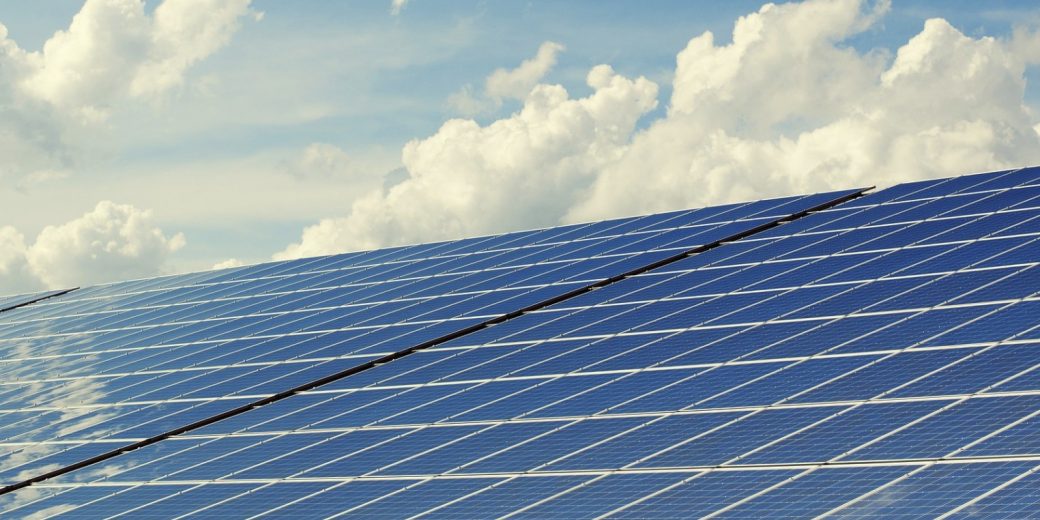Are solar panels old news?

We don’t think so. Yes, the science behind them, how they look, where they are placed are all changing. However, with Theresa May unveiling recent plans to halve the energy used in all buildings by 2030, solar panels could play a significant part in that.
They can certainly improve your Energy Performance Certificate rating but it all depends on how many panels you install and the size of them. It’s best to do your research first so we’ve put together some key facts to help you with your decision if solar panels are something you are considering.
Are solar panels all sunshine?
After a wet start to the summer, we could certainly do with some sunshine but did you know that solar panels don’t only need sunshine to generate energy but daylight also produces it?
There are two types of solar panel (1) solar thermal, which allows you to heat water and can cut down heating bills; and (2) photovoltaic solar panels, also known as solar PV. They catch the sun’s energy and convert it into electricity that can be used to power household goods and lighting.
South facing roofs get the best light and it’s also important to ensure the panels are free of shading from trees and buildings.
Benefits to solar panels
There are approximately 850,000 installations of solar panels in the UK so there must be some benefits to them. So what are they?
- saving money on your electricity bill by using the sun’s energy to generate it;
- earning money from the electricity you generate and selling that back to the grid (more about this below);
- cutting your home’s carbon footprint.
Feed-in Tariffs (FITs)
FITs is a UK Government scheme that amongst other renewables also includes solar panels. Under FITs, you could be paid for the electricity you generate from the solar panels. Your energy supplier will pay you a set rate for each unit (or kWh) of electricity you generate. You would also receive a further rate for each unit you export back to the electricity grid, so you can sell any electricity you generate but don’t use yourself. In order to get the best FIT rate you should have an EPCs of a D or higher.
In addition, you will be making savings on your electricity bill because generating electricity to power your appliances means you don’t have to buy as much electricity from your energy supplier. Win, win. Or is it?
What are the costs when buying the panels?
A survey conducted by The Eco Experts who surveyed 390 UK homeowners with solar panels in January 2018 said they had spent less than £4,000 on their panels. The panels typically cost between £1,500 and £8,000 depending on their size and electricity output. A household of 3 or more people would usually need a 3/4kW solar system and would be looking at £5,000 upwards for panels.
The good news is that once installed there is very little maintenance work with the panels. They also rarely break but it’s wise to check this out with your manufacturers warranty. In addition, it is approximately £100-200 for the panels to be cleaned throughout the year.
What are the other options?
There is also an option of having the panels fitted for free but then in effect you are renting your roof space for the panels. This can be an attractive offer if you don’t have the cash up front. Before signing any contract we recommend that you get independent legal advice, whether you have free solar panels or are considering solar buyback. There have been news stories of mortgage companies not approving mortgages because of the 20 year lease on a roof.
Points to consider are:
- Who owns the system and what happens if you want to end the contract early?
- Who would pay for any repair and upkeep of the panels?
- What insurance would be needed for them and who is liable for any damage caused to them?
- What would happen if you moved property and what affect would there be on selling that property? Some companies suggest that it would add a value of 14% to your property but it could also have the reverse affect for some buyers.
- Who is responsible for cleaning them?
- The Renewable Energy Consumer Code provides a list of free solar PV system information on its website, which you should expect rent-a-roof scheme companies to provide. It’s certainly worth having a look before signing up to any contract.
What is the future for solar panels?
The cost of solar panels has fallen over the years and is likely to continue to fall further in the future. However, the benefit to installing them as soon as possible is that you lock in the FIT that the government issues for 20 years which will continue to be reduced every quarter without locking in.
If the look of solar panels is a concern for you, take a look at the article here in Solar Power World on 30 April 2018. The article discusses a new solution which could help secure deals when potential solar customers see modules as eyesores. Sistine Solar produces a graphic film called SolarSkin that installers place on high-efficiency solar panels to blend the modules with the roof. Red Spanish tile roofs can now go solar without the noticeable blue and black rectangles installed on top.
Recently there has been publicity about hybrid solar panels, also called all-weather solar panels, which generate electricity from both the sun and the RAIN. In addition, the organisers of the 2022 World Cup in Qatar are backing a Scottish-based project that will have fans walking on sunshine … literally as they plan to build a solar pavement!
Our top tip!
Always make sure the installer is a member of the Renewable Energy Consumer Code which offers redress if a system is mis-sold.
* This article should not been seen as legal advice.
